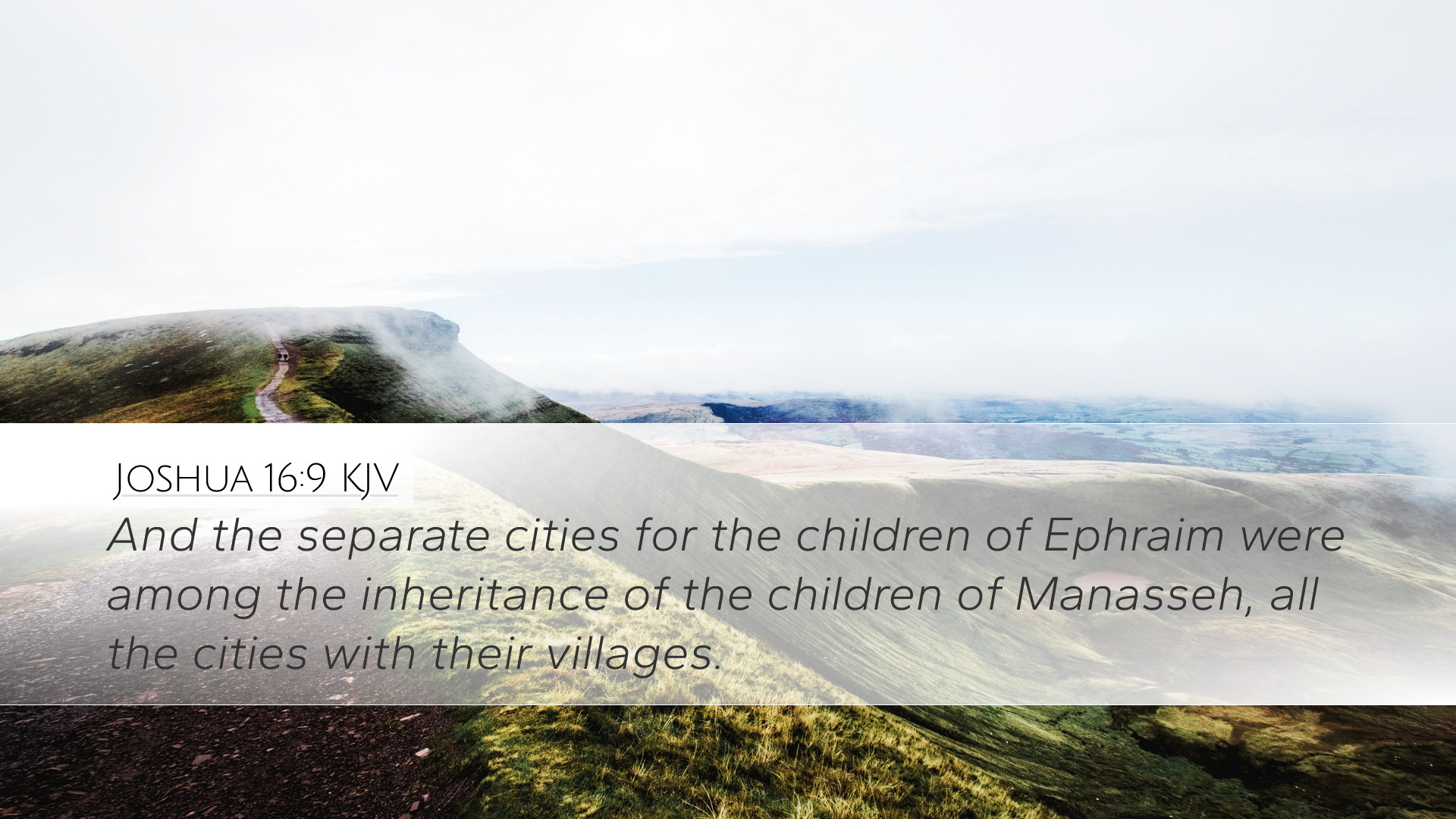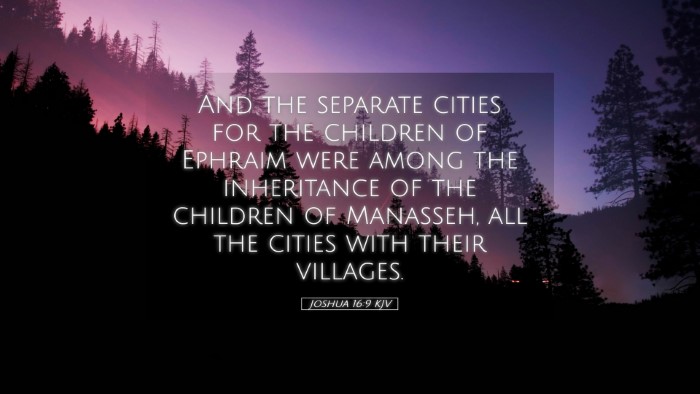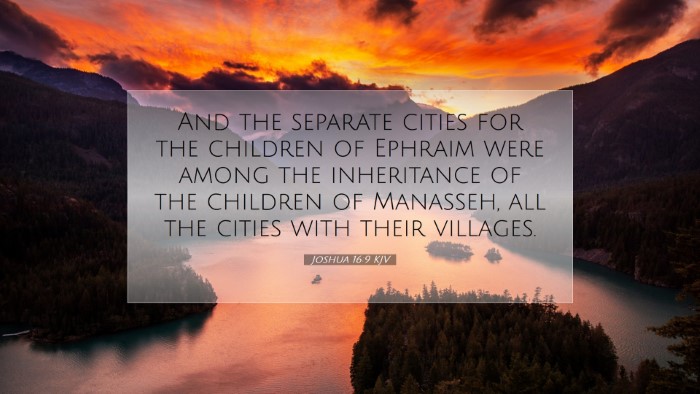Old Testament
Genesis Exodus Leviticus Numbers Deuteronomy Joshua Judges Ruth 1 Samuel 2 Samuel 1 Kings 2 Kings 1 Chronicles 2 Chronicles Ezra Nehemiah Esther Job Psalms Proverbs Ecclesiastes Song of Solomon Isaiah Jeremiah Lamentations Ezekiel Daniel Hosea Joel Amos Obadiah Jonah Micah Nahum Habakkuk Zephaniah Haggai Zechariah MalachiJoshua 16:9
Joshua 16:9 KJV
And the separate cities for the children of Ephraim were among the inheritance of the children of Manasseh, all the cities with their villages.
Joshua 16:9 Bible Commentary
Commentary on Joshua 16:9
Text of Joshua 16:9 (KJV): "And the separate cities for the children of Ephraim were among the inheritance of the children of Manasseh, all the cities with their villages."
Introduction
The verse in Joshua 16:9 provides insight into the inheritance of the tribe of Ephraim, particularly its cities that functionally belonged to both Ephraim and the tribe of Manasseh. This portion of scripture fits within the broader context of the allocation of land to the tribes of Israel following their conquest of Canaan. As we dissect this verse, we will draw from established public domain commentaries and scholarly insights to enhance understanding.
Exegesis of Joshua 16:9
In understanding Joshua 16:9, several concepts must be explored. Matthew Henry, in his commentary, emphasizes the division of land amongst the tribes as a fulfillment of God’s promise to Israel. The children of Ephraim received cities that were intertwined with the inheritance of Manasseh, symbolizing both unity and separation among the tribes.
The Significance of Cities and Villages
Henry further notes that the mention of "cities with their villages" reflects the cultural and social life of the Israelites. The cities were more than mere settlements; they were the centers of community, worship, and commerce. Each city would serve as a hub for Ephraimite life, encapsulating the wider identity of the tribe within the community of Israel.
Inter-Tribal Relations
Albert Barnes views the relationship between Ephraim and Manasseh’s cities as indicative of the cooperative nature intended among the tribes of Israel. The geographical proximity of these cities allowed for alliances and mutual support in both daily living and conflict. The theological underpinning is that while God separates His people into different tribes, He also commands a united existence for the purpose of His divine mission.
Theological Implications
Adam Clarke explains the deeper theological implications of the suburbs or villages of the cities. He posits that this arrangement serves as a divine illustration of the church's structure. Just as Ephraim and Manasseh coexisted and borrowed from each other’s resources, so do Christian communities today find strength in unity, respecting the diversity of ministries and callings within the body of Christ.
Division and Unity
- Division: The verse points to the delineation of land, which can be interpreted as God’s order in community life. Each tribe had defined boundaries, reflective of God’s governance.
- Unity: The shared cities suggest a cooperative spirit. It reminds believers of the significance of working together while respecting individual identities.
Practical Lessons for Today
For pastors and theology students, Joshua 16:9 serves as a reminder of the importance of community in the life of believers. Churches are called not just to coexist but to engage in fruitful relationships that reflect the love and unity found in Christ.
Application in Ministry
Consideration of Ephraim’s cities prompts ministry leaders to ponder the nature of their congregation’s communal identity amid various backgrounds and individual aspirations.
- Fostering Community: Encourage interactions between different groups to promote a sense of belonging.
- Shared Resources: Utilize strengths from varied ministries for collective pursuits in spreading the Gospel.
- Mission Focus: Collaboratively engage in mission work, drawing on the collective resources of the church body, echoing the interdependence of Ephraim and Manasseh.
Conclusion
Joshua 16:9, while appearing to be a straightforward allocation of land, unfolds rich theological insights regarding community, unity, and divine order. It reminds contemporary believers of their shared responsibility and privilege within the body of Christ, highlighted by shared cities and the ongoing mission to reflect God’s glory in their lives. As we engage in the study of Scripture, may we find inspiration in the interactions of God’s people, learning to build lasting relationships that honor our Creator.


